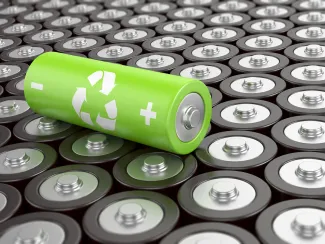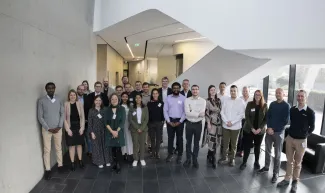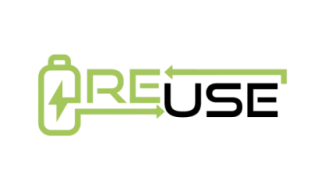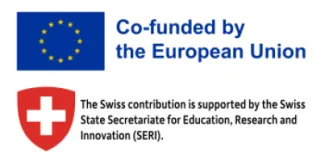ReUse develops a circular and sustainable approach to recycling LFP batteries
Lithium iron phosphate (LFP) batteries are a type of lithium-ion battery (LiB), known for their low cost, high safety, low toxicity and long cycle life. They are used in electric vehicles and utility-scale stationary applications. However, like all types of LiBs, they also pose a significant environmental challenge when reaching end-of-life, as they contain scarce materials that are often wasted or poorly recycled. The ReUse project, a new Horizon Europe initiative, aims to tackle this challenge by developing a novel direct recycling process, specifically for LFP battery waste.

The challenge of low-value battery waste
The ReUse project, short for "Efficient direct recycling for low-value LFP battery for circular and sustainable waste management," is a 36-month research initiative.
The project aims to improve the circularity and sustainability of the European Lithium-ion battery (LiB) value chain, in line with the goals of the Battery Partnership launched under Horizon Europe. The main objective is to address the entire low-value Lithium Iron Phosphate (LFP) battery waste stream, ranging from production scrap to end-of-life LiBs. To do this, ReUse will develop new recycling processes that maximize the recovery and recycling of input materials and components.
Development of a direct recycling process for LFP battery waste
ReUse will design a robust, flexible, and sustainable direct recycling process for battery waste streams of different composition and quality. The process will focus on enhancing material recovery, energy efficiency and purity. The expected outcome is to boost the global competitiveness of the European battery ecosystem, in accordance with the European Strategic Plan for a clean and sustainable transition towards climate neutrality. ReUse will also contribute to the policy needs of the European Green Deal and efficient recycling technologies, building on the BATTERY 2030+ Roadmap and the European Partnership on Batteries.
A multidisciplinary team
ReUse is a collaborative effort of 13 partners from 8 different European countries, including research institutes, universities, industry and civil society. The partners met for the first time for a Kick-off meeting held on the 31st of January and 1st of February 2024 in Würzburg, Germany.
VITO is deploying two of its technological solutions for the project: Characterise-to-Sort and direct recycling technologies. Characterise-to-Sort will be used to improve the characterisation and sorting of the battery waste streams. For the direct recycling step VITO will develop a process that will purify and regenerate reclaimed cathode material from waste batteries into cathode active material that can be directly re-used into new batteries.


More information on ReUse:
ReUse is co-funded by the European Union's Horizon Europe research and innovation programme, operating under Grant Agreement No. 101137774, and by the Swiss State Secretariat for Education, Research, and Innovation (SERI).



